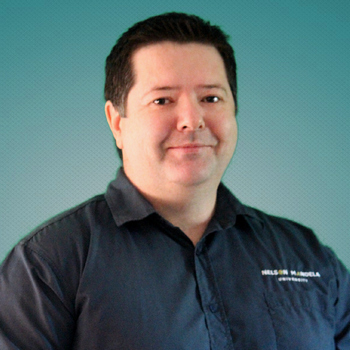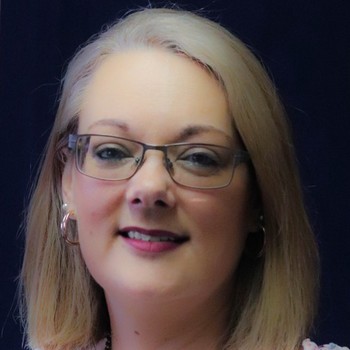Inaugural Lectures
An Inaugural Lecture is an auspicious occasion for the University to acknowledge the appointment or promotion of new, full professors, introduce them to the academic and non-academic community of the University, and to provide opportunity for engagement with the greater community.
The presentation of an Inaugural Lecture is a significant milestone in the academic career of a full professor and provides a platform to share past research and introduce new ideas to a diverse academic and non-academic audience.
The abstract and/or full text of each lecture as well as a bio are available for download from the bulleted list below each Professor's name. The video of each lecture has been published on our YouTube channel and can also be accessed below the bulleted list.
2022

PROFESSOR GERRIT CRAFFORD
Faculty of Engineering, the Built Envirnoment and Technology
Lecture title: "Fostering quantity surveying student success: unmasking the factors that influence student engagement"
Date: 20 October 2022
Since the dawning of democracy in South Africa, the main failing of the higher education sector was the absence of participation by previously disadvantaged students. The Department of Higher Education and Training (DHET) indicates that the participation rates of previously disadvantaged students have improved. However, student success and throughput rates remain a severe challenge to the higher education sector in South Africa (Chetty & Pather, 2015). The "revolving door" syndrome, in which increased access to higher education is not met by student success, continues to plague this sector (Strydom & Mentz, 2010). Thus, the high failure rate in higher education requires urgent interventions since there are substantial costs associated with re-educating students and the pressure of re-admitting failed students into continually growing classes (De Villiers & Werner, 2018).
PROFESSOR STEPHEN MAGO
Faculty of Business & Economic Sciences
Lecture title: "What is the future of financial inclusion? "
Date: 3 September 2022
The purpose of this lecture is to explicate the future of financial inclusion with a focus on Africa. Understanding financial inclusion, its advantages, and its trajectory into the future sets a scene for future research and debates. In preparing this lecture, I used systematic literature and bibliometric analysis complemented with field research done in two selected areas (Masvingo district in Zimbabwe and the Kirkwood area in the Eastern Cape, South Africa).

PROFESSOR JANINE KRüGER
Faculty of Business & Economic Sciences
Lecture title: "Is e-business the saving grace for retailers during Covid-19?"
Date: 8 September 2022
When posing the question whether e-business is the saving grace for retailers during Covid-19, the immediate answer will be yes. As the world has turned upside down towards the end of 2019 due to the outbreak of Covid-19 while South Africa felt the effect of Covid-19 as from March 2020, the business environment changed rapidly. Customers have the lived experiences of not being able to patronise these retailers due to the hard lockdown restrictions. Retailers therefore had to find different ways to reach and provide need satisfying products to their customers. Whether retailers are implementing a new strategy or expand an existing strategy, retailers were required to adapt their strategies with the focus on business survival. The revenue from e-commerce has increased significantly due to the pandemic although brick-and-mortar businesses had to compete with online businesses even prior to Covid-19.
PROFESSOR CHERYL WALTER
Faculty of Health Sciences
Lecture title: "Physical activity and health: building health-promoting schools in Gqeberha and beyond.
Date: 11 August 2022
The health and well-being of children living in low-income impoverished communities in South Africa is of great concern. They have become victims of the poverty and growing inequality, and the country’s purported status as the most unequal country in the world. Research has shown that there is a growing risk of children being affected by the dual burden of infectious diseases and the rapidly increasing non-communicable diseases, which has detrimental consequences to their growth, development and well-being.
PROF ZENIXOLE TSHENTU
Faculty of Science
Lecture title: "Towards mineral beneficiation: from basic chemistry to applications"
Date: 26 July 2022
The role of mineral beneficiation in the survival, growth, development and sustainability of a developing economy cannot be overstated. Our development as a human species has always been involvedly linked with the use of mineral resources from the stone, bronze and iron ages through the early modern eras to the present. In the current modern era, characterized by highly technological equipment, fourth industrial revolution (4IR) and new energy technologies, the role of mineral beneficiation has been elevated.
PROF MARYNA VAN DE VENTER
Faculty of Science
Lecture title: "Exploring Plants as Medicine: An In Vitro Approach"
Date: 1 June 2022
Plants were the first medicines available to mankind. Archaeological evidence for the use of plants as medicine dates as far back as 60,000 years ago and the first written records are from 5,000 BC. In this lecture, I explain how we use quantitative, high-throughput fluorescence imaging techniques to test samples for anticancer and antidiabetic activities. First the difference between normal- and cancer cells and how cancer chemotherapy targets those differences, is explained.
PROF RONEL NEL
Faculty of Science
Lecture title: "Sea Turtles as Ocean Ambassadors: Opportunities and Challenges"
Date: 15 May 2022
Watching a sea turtle nest is like looking back through a window into deep time. This appearance and disappearing act of sea turtles creates an enigma that elicits a multitude of disciplinary, inter-, and intradisciplinary teaching, research and engagement opportunities ranging from archaeology to social sciences, including tourism, biology and ecology, conservation and policy. In these different spheres, I operated over the last two decades to understand sea turtles, their biology and behaviour to affect their conservation.
2021
PROF DEON ERASMUS
Faculty of Law
Lecture title: "Corruption, State Capture and the Betrayal of South Africa’s Vulnerable"
Date: 25 October 2021 (online event)
It is generally accepted that corruption in South Africa has become endemic. The report of the Public Protector entitled State of Capture of 2016 sets out the way in which former President Jacob Zuma and senior government officials colluded with the Gupta family in the appointment and dismissal of cabinet ministers and directors of SOE’s, which led to the improper and corrupt awarding of state contracts. The revelations by witnesses at the Judicial Commission of Inquiry into Allegations of State Capture made it clear that South Africa entered a phase of state capture under the presidency of former president Jacob Zuma and is still in a state of capture.
PROF ROELF VAN NIEKERK
Faculty of Business & Economic Sciences
Lecture title: "Psychological perspectives on the development and manifestation of extraordinary human achievements"
Date: 21 October 2021 (online event)
Psychobiographical research focuses on the lives of extraordinary individuals. In essence, psychobiographies are biographies that employ psychological theory to clarify, highlight and illuminate significant experiences, events, and contributions that characterise the lives of extraordinary individuals. Typically, psychobiographies comprise three elements: (a) a biographical account, or life story; (b) a detailed description of contextual factors, developmental processes, and accomplishments; and (c) a theoretical interpretation of the life story.
PROF JOANNE NAIDOO
Faculty of Health Sciences
Lecture title: "Stigma Syndemics & Symbolic (isms) in the context of HIV: Ways of Knowing in Health Care"
Date: 18 October 2021 (online event)
The negating effect of stigma on health outcomes has been widely established. Described as a hidden burden of disease, stigma significantly influences the inequities in health. The seminal work of Sociologist, Erving Goffman’s (1963), continue to underpin our current understanding of stigma as socially influenced through the symbolic interactions of everyday experiences that influences behaviour.
PROF FAROUK SMITH
Faculty of Engineering, the Built Environment and Technology
Lecture title: "The invisible enemy of satellite electronics"
Date: 16 September 2021 (online event)
Spacecraft electronics are susceptible to the adverse effects of space radiation. Our jobs as engineers and scientists is to find ways to characterize these effects and find ways to mitigate it in order to ensure seamless operation of the satellite mission.
PROF KERRY-LYNN THOMSON
Faculty of Engineering, the Built Environment and Technology
Lecture title: "Cybersecurity - Reducing the Attack Surface"
Date: 26 August 2021 (online event)
Almost 60% of the world’s population has access to the internet and most organisations today rely on internet connectivity to conduct business and carry out daily operations. Further to this, it is estimated that concepts such as the Internet of Things (IoT) will facilitate the connections of over 125 billion ‘things’ by the year 2030. However, as people and devices are becoming more and more interconnected, and more data is being shared, the question that must be asked is – are we doing so securely?
PROFESSOR BRINK BOTHA
Faculty of Engineering, the Built Environment and Technology
Lecture title: "Property Development Body of Knowledge - PDBoK"
Date: 11 August 2021 (online event)
Property development constitutes one of the largest enterprises and gross domestic product contributors of the world. Property development is about the development of land or Real Estate. The business of property development boasts enormous successes over the centuries, however also incurred substantial losses. Then the Covid-19 pandemic took this sentiment to new horizons.
PROFESSOR RUSSELL PHILLIPS
Faculty of Engineering; the Built Environment and Technology
Lecture title: "The role of renewable energy in de-urbanizing post Covid Africa"
Date: 28 June 2021 (online event)
The notion of promoting a remote work concept beyond the pandemic with a view to encouraging de-urbanization is proposed in this research. To achieve meaningful levels of de-urbanization in Africa, particularly in remote, rural areas two major challenges need to be overcome, namely internet connectivity and energy supply.
2020
PROFESSOR PIERRE PISTORIUS
Faculty of Science
Lecture title: "Marine Apex Predators - Sentinels of Oceans under Siege"
Date: 24 August 2020 (online event)
The notion of promoting a remote work concept beyond the pandemic with a view to encouraging de-urbanization is proposed in this research. To achieve meaningful levels of de-urbanization in Africa, particularly in remote, rural areas two major challenges need to be overcome, namely internet connectivity and energy supply.
Inaugural lectures from 2016 to 2019
We use cookies to collect information to ensure you get the best experience on our website.
Learn more about cookies. Read our
privacy statement.